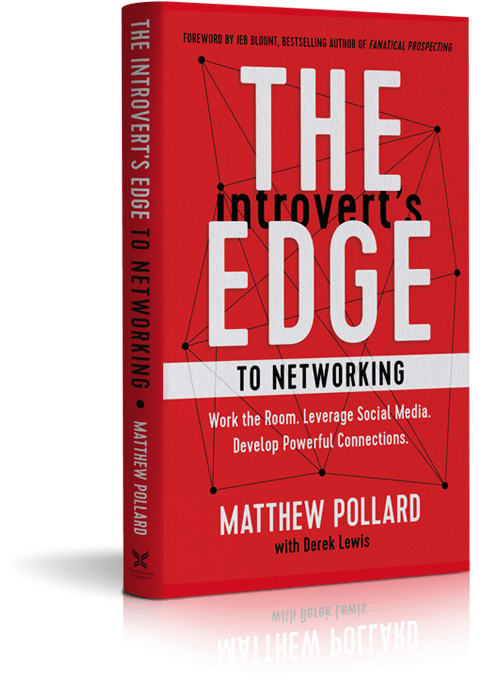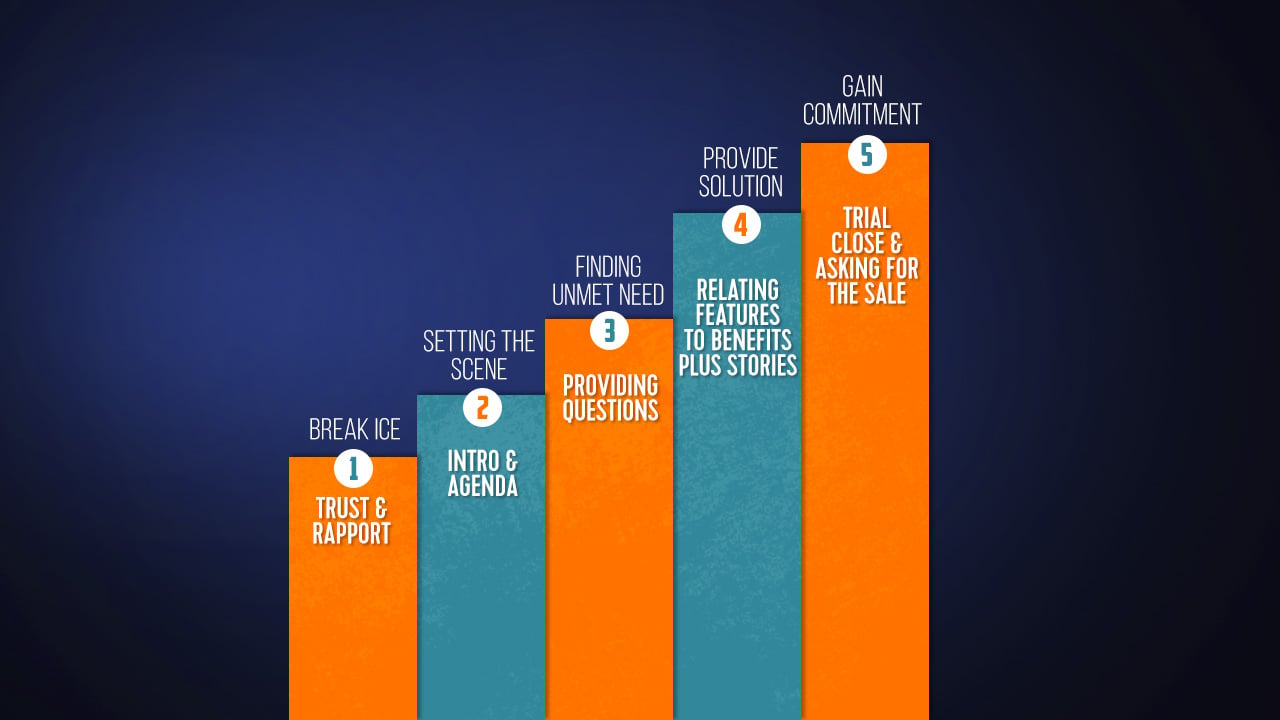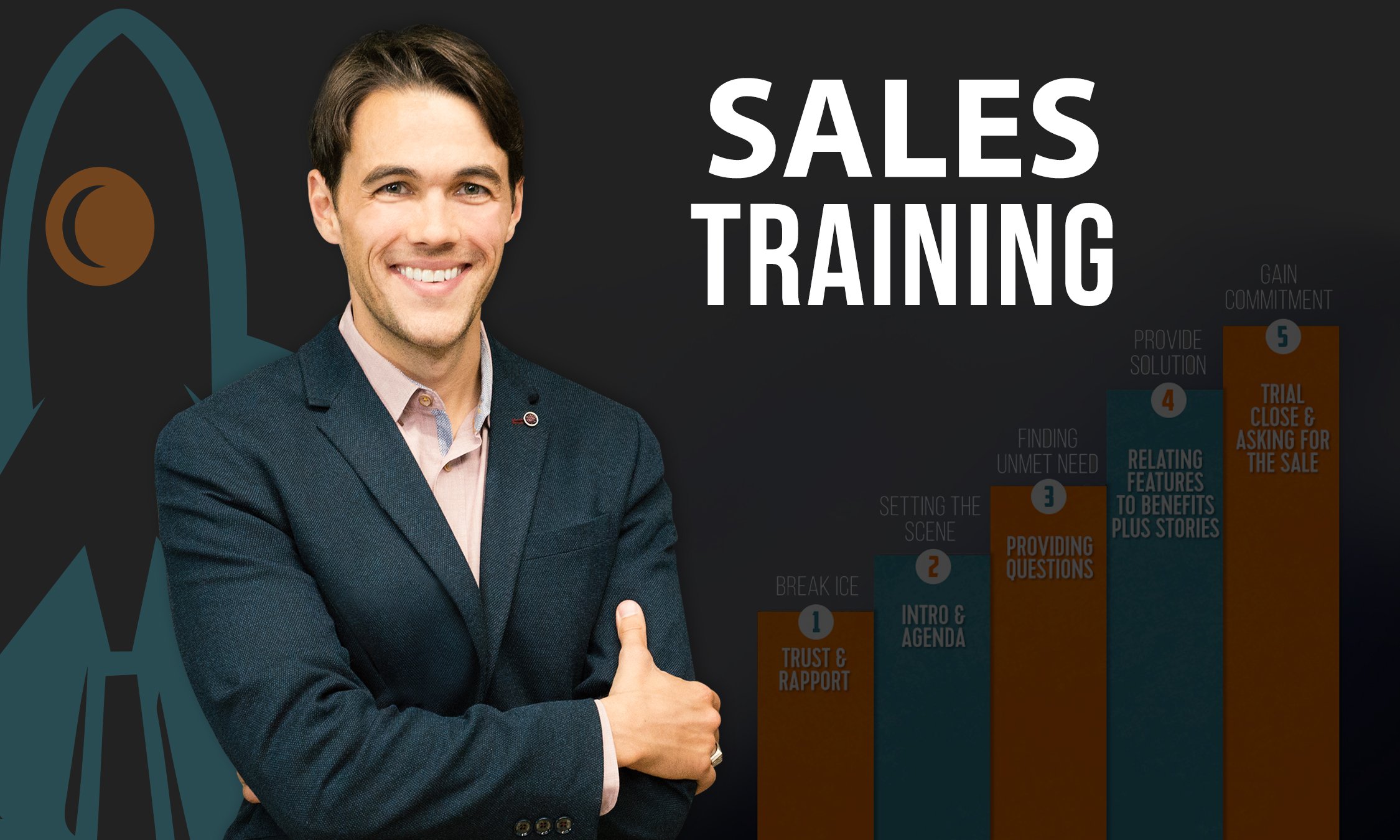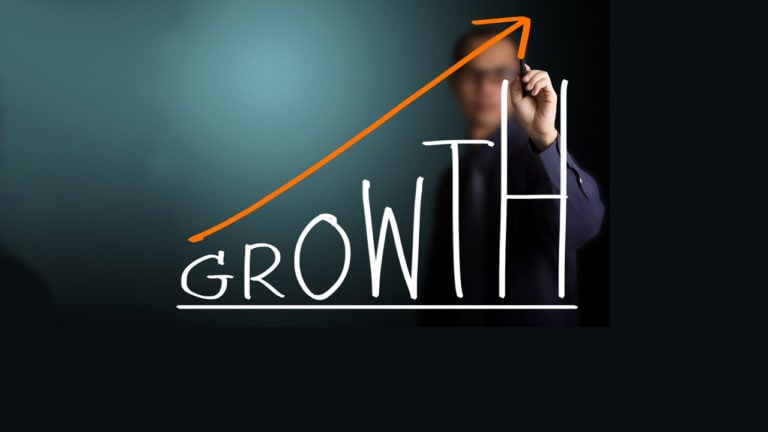Dan And Matt Session Seven Transcript
Dan: Hello again, and welcome, to DanAndMatt.com for this, the seventh session in our series of ten sales and marketing presentations. Tonight, Matt, we’re looking at demystifying the sales process. And I find that it’s interesting that a lot of people say things like “Oh, great sales people are born, or they’re gifted with the gift of the gab, so they’re not really taught, it’s a freak of nature.”. What are your thoughts on that?
Matt: It’s funny that you say that, Daniele. As a matter of fact I’m generally surprised with people saying that because they constantly say that they’re perhaps not born to be a salesperson yet they spend hours and hours chasing prospective clients, writing in-depth proposals, following up on those clients and I guess continually making phone calls to those people only to have those customers ripped away from them by other products and services that in many cases aren’t better and aren’t cheaper. And they tend to put that failure down to the fact that they weren’t born to be a salesperson or they just don’t have the gift of the gab. And, look, that always surprises me.
I mean, I find it ridiculous because if you can imagine a person going to neurosurgery for the first time and with no training, no skill sets, no processes to follow, trying to perform brain surgery, you’d be shocked. I mean, so many things could possibly go wrong. And to have that person walk out of the surgery and go “You know what, maybe I just wasn’t born to be a neurosurgeon. Or I just lack the dexterity to be a neurosurgeon.”. Everybody would say, straight off the bat, “No, you’re just missing the training. You need to spend five years at school to learn to be a neurosurgeon, learn the strategies, learn the steps, before you step out and actually do that for yourself.”. But then when it comes to sales, or marketing for that matter, people just walk out and go “I know how to be a doctor, I know how to be a plumber. I’m going to just be able to sell straight off the bat.”. Just like that. And it shocks me because sales, just like any other profession, just like any other skill set, is learnt, practised, mastered and applied. And what we need to constantly focus on is being able to do that in this genre or this skill set, just like any other.
Dan: So it’s fair to say then that you weren’t born a natural salesperson?
Matt: Not at all. I mean, for me I started off as a door-to-door salesperson selling telecommunications. I worked business to business and, I mean, it took me ninety-three doors before my first sale. That’s a lot of walking to businesses and getting rejected. And I think, for me, I was quite introverted, quite shy, when I was starting off so as a consequence I didn’t just have that natural born gift, if you like. So a lot of people, and I found a lot of people, that I learnt to sell more than, in the future, they were the ones that would walk out and they could naturally talk to people. And as a consequence they had some customers that would listen and succeeded quicker than I did. However by learning the strategies, the skill sets and constantly trying to improve the process, as an introverted person, or as an analytical person, I constantly just looked at it as “the process”. I think if I had of been emotionally invested, Daniele, I might have struggled because they’re people rejecting me, and that can be a little bit like dating for the first time or that sort of thing. It becomes personal.
But I continued to look at it like a process and I continued to go through the steps in that process to get the desired outcome. And as a consequence my sales process got better and better because I just kept improving. I looked at the elements that worked and I added to those, I looked at the elements that didn’t work and I took those out. And as a consequence I got so much better that within a short period of time, just a few months, I was national number one salesperson right across the board for the largest sales and marketing company in Australia. I also was promoted heavily, I mean, I ended up state manager for the second largest telecommunications company in Australia and the largest one in the southern hemisphere, their major supply partner, just because I developed a strategy and a system that was highly successful, I began to be able to teach it to other people. So if you ask me whether it was a natural ability, I can say definitely not. If you ask me whether or not I’m grateful it wasn’t a natural ability, 100% I am. Because it allowed me to develop the skill set to make it easier for non-naturals to learn.
Dan: So, let me just clarify this in my own mind. Where exactly did things turn around for you? What was that moment of clarity where you knew “Right. Something’s gonna change here.”?
Matt: Okay, well, for me I struggled always with learning and getting concepts. I was really good at repetition, right? So what I focused on what constantly repeating what I did. And when I noticed something didn’t work, I took it out. When I noticed something did work I left it in and kept repeating it. As a consequence of repeating it – it’s just like telling a story, when you’re talking to your friends. As you tell it more and more, you get better and better at teaching it, or telling it. And as you start to tell it more and more you start to realise what works really well and you start to work those concepts. And if people don’t identity with certain parts of the story you take it out. Once I realised you could do that exactly the same way in sales, that was the a-ha moment for me. And I realised it’s now a possibility.
People seem to think that sales is an art form. You’re either an artist in sales, i.e. born to be a salesperson, or you’re not an artist in sales, i.e. should work away and leave that to the naturals. And I so disagree with that because I know I wasn’t a natural and I know that unless I put in the time – again, going back to the neurosurgeon analogy, like, they put in the time, right? You don’t develop that sales dexterity, if you want.
Dan: So, I think what you’re telling us is that it’s a totally learned skill.
Matt: Look, I can say that there are people that are naturally better at starting the sales process than others. Just like I’m sure the first day at university there are some people that are naturally better. However over time the people that put in the work are the people that succeed, and the people that focus on processes and systems are always the ones that come up trumps. I mean, there are many people that make hamburgers, right? But McDonalds was the one that came through because they focused on process, procedure, and systems. Now I can think of a hundred thousand different industries and yet that is always going to be the same. Focusing on process and systems is successful.
Dan: And they’ve got that, let’s face it, again, we all know who McDonalds are. The golden arches. They’ve got that amazing consistency that, to their credit, you can walk into a McDonalds virtually anywhere in the world and you know what you’re getting for that purchase.
Matt: Definitely, and that’s exactly right. And what we’re going to be covering off is how to make that happen in sales, and a lot of people tell me that’s not possible, but I’ve worked with hundreds of industries, thousands of clients, and every single time, when someone tells me it’s not possible, we find it possible and, not only do we find it possible, their sales skyrocket. Just because what we need to do is systemise (spellcheck says the correct word is “systematise”) it, just like every other part of their business.
Dan: So, I’m almost…I think I’ve got the answer before I ask the question, but, so what’s the greatest thing that people struggle with? Is it lack of system?
Matt: Well, it’s not a lack of…well, it is lack of system, but what I tend to find is people tend to spend most of their time focusing on secondary systems. People tend to say “Oh, my CRM system has to spot on, my product has to be spot on, my compliance has to be spot on. The product delivery, the service has to be spot on.” and they focus on all these secondary systems but what seems to get neglected is the primary reason for a business success or failure, and that is the sales. The marketing, of course, which we’ve discussed at length, but also the sales.
Dan: And why is that, then? Why is that?
Matt: I think it’s largely because within sales there’s a stigma towards it. People think that they have to be manipulative or pressure people into doing something they potentially don’t wanna do, and as a consequence it’s become a little bit of a dirty word. If people say they’re a salesperson, if you say “I work in the electricity industry,”, “Oh, what do you do?”, “I’m a salesperson,”, “Ooh, well, my electricity’s fine.”. They almost feel like they have to defend the reason why they’re a salesperson, it’s uncomfortable. There shouldn’t be a stigma in my view. For me, if done correctly, right, you just follow through six milestones. I mean, Daniele, we’ve spoken a few times, and you actually told me that sales is about…
Dan: It’s about serving people. And in fact it’s interesting you mention that because that wasn’t just a personal perception that I had about what a good salesperson does – it’s a little bit of trivia here, but the word “selling” is actually derived from the word “sillus” (no idea how to spell, Google didn’t help, sorry), which means “to serve”.
Matt: So, taking that concept, why is it all of a sudden we’ve gone from “I’m here to serve you,” to “I’m here to pressure and manipulate you into making a decision”. See, to me, those concepts aren’t related, right. And when we look at marketing, yes, definitely, it helps to know that we have a product that a market, a part of a market, really wants. And sales is about delivering that. So sales gets a lot easier if the marketing is right. However, sales is about building a rapport, introducing a product, talking about an agenda, identifying a need, relating that need, or the features of your product, to the benefits for that customer. Telling them some stories about some people you’ve worked with in the past that had that same need or want, okay, or that same pain, that you really helped and it changed it for them. And then asking the customer to take the next step. To me, it’s really that simple. And if we look at it from a volleyball analogy, because I know, Daniele, you’re quite a fan of volleyball.
Dan: Oh, it’s a great sport.
Matt: So what I wanna do is I wanna use a bit of conceptual understanding that people could get. So tell me about volleyball, Daniele, tell me the importance – when you’ve got a group of players, what’s the role of, once the ball goes over the net, what’s the format before they obviously do the spike at the end that gets them to…
Dan: And I’m pretty sure I know where you’re going with this. For those of you that have watched volleyball, obviously, ultimately, the point is – the point of the game is to get the ball away from the opposition, but unlike tennis or table tennis the net is so high that strategically you’ve got to raise the level of the ball high so then you can apply the final powerful thrust. So perhaps there’s some analogy there that before we can sell the product, we’ve got to raise interest.
Matt: Daniele, that’s exactly right. When we look at the volleyball analogy it’s a team sport that focuses on getting the ball from the initial stage and constantly hitting it up to a point where it’s high enough for a team member to spike it down, okay. And what we’re really trying to do, in sales, if we use the same methodology – and I’m gonna get a model up on the screen just to really explain to you – but if we can imagine, trust and rapport, it’s really about breaking the ice and getting the ball up for the first time. Then what you’re really doing is the second step, is you introduce yourself, what you’re there to do, and the agenda of the meeting, and now all of a sudden the ball’s a little bit higher. Now, I’m going to preface and say this is the easiest part, and by no means the part that gets the ball right upto the net. The most important part, and what I would say surpasses any other step, is the probing questions. Finding the unmet need. Now, we’ve spoken about the unmet need right through this process.
Dan: No surprise here, is there?
Matt: Not at all. So, we’re trying to find the unmet need, and what we see, if we’ve got the volleyball analogy, is we’ve gone from slightly off the ground, to a little bit closer off the ground, and all of a sudden the ball goes straight up. Because all of a sudden we’re now starting to identify the unwanted, sorry, the unmet need which specifically will help us sell. Because then we hit the ball up a little bit higher, which is providing a solution, which is attaching the features of our product to the unmet need, or their benefits as a customer, and relating it to both tangible and intangible benefits for themselves. The intangible, obviously, would be talking about what’s going to help them. The tangible would be something they can touch, feel or taste, okay. Something that they’re going to be able to experience. I.e. I can save you $5000, that’s intangible. That’s a holiday for you and your wife, to go on holidays. Fantastic. I can see myself going on that, fantastic.
Then what we do is we introduce the trial close and the asking for the sale. Now that is the part where after all of the features and benefits we’re now at the top, and that’s the smackdown. Now that is the easiest part of the sale if you know what you’re doing, and if you’ve done all of the other steps. There should be no uncomfortability there because all of a sudden the ball is high enough for it to be spiked. But if you can imagine doing it from anywhere lower…
Dan: You might put the ball into the net, basically.
Matt: Exactly right. Now going back to, I guess, new salespeople or people who don’t have that experience, I constantly see them jump around the sales process. There’s no set – when I say “process”, I use that wrongly, there is no process. They leave out key details, and as a consequence of leaving out key details and failing to show the benefits – I mean, people tend to, it shocks me constantly, but people tend to talk about the brochures. They’re a brochure salesperson. So, they’ll hold it out and they’ll say “So, this is one feature that we have, this is one feature that we have, this is one feature that we have.” And as a consequence they have to push the sale, they have to force the closing, because they haven’t followed through with the process. The ball’s halfway up and you’re doing a Hail Mary spike, or a Hail Mary pass, to try and get a victory here.
Dan: And can I make a point, Matt. The worst thing that can happen to a salesperson, I think, is that using this ad hoc approach, if they do get a victory early, let’s say for whatever reason, someone just happens to like the product and they buy it, that persons got a false hope that “Oh, this is the way to do it, then” whereas they got that sale in spite of themselves.
Matt: Exactly right. And everybody gets a lucky shot. Exactly right. And again, I know I continue to use this analogy, but again, imagine a person trying to perform surgery with no process, no system, it would be uncomfortable for them too. So everything is uncomfortable without experience, everything is uncomfortable without a process. And we do things that are uncomfortable until we get the systems and the experience together to be able to do it where we’re comfortable with that process. And, again, we’re going to step back to the volleyball analogy and I’m going to pull this other message on the screen because I want you to really visualise how most people are trying to sell these days and understand how not ridiculous it is, but how uneducated it is, and why it seems to go wrong. Because realistically we spend thirty seconds breaking the ice, and then all of a sudden as soon as we’ve broken the ice we’re trying to hit the ball straight to talk about features of our product, right? Now were talking about features of the product, the ball’s still down here. We haven’t worked out finding the unmet need, we don’t know what the customer wants. We’re just reading them a brochure in the hopes they go “Hey, I’d love electricity,” or “Yes, I was looking for education,” or “Yep, you know what, I was thinking about buying a Dell laptop next week.”. It just doesn’t happen that frequently.
Dan: And, in fact, not to break your flow here, but the statistics are undeniable here, that over 90% of all selling globally fails. And it is right there that it fails. It fails because people are trying to get up this mountain of interest where, and we’ve explained it many times, you’ve got to find this unmet need, and through that revelation that yes, I’ve got a problem, help me with it, that the interest soars. There is no interest. It’s like “Oh, you sell electricity? Fantastic. I’ve got an electric company, what do I care?”.
Matt: It surprises me constantly. I mean, I’ve gone to networking functions, and I go to networking functions more as entertainment value, or more to meet people that I can get to work with me. But when I go to networking functions people ask me what I do, and I first say “No, let’s talk about what you do.”. I understand what they do as a business, or on a personal level, I understand everything that’s going on in their lives. Then I talk to them about what I do. But everything that I do relates back to how I can help them, right? And that’s why doing it that way really helps. When I find I ask them what they do they go “I work in the electricity business.”. Okay, great, I’m interested in the electricity business. “Well, this is our price _____ (sounded like “price tag”)”. It just doesn’t work as well.
So as a consequence, again, you’re following those steps and you go into trust and rapport, all the way to just talking about features, and then doing this Hail Mary ask for the sale, or sitting on your back hoping that the ball will fall on your hand and go over that net. And realistically it’s going under the net or going smack bang into that net unless by some lucky break, and as we said sometimes you do get one, some miracle happens and you get sales. And the real scary thing is when that happens and verifies for a person that they’re doing the right thing in the early stages, and the amount of salespeople I’ve trained that forget to follow the process and end up with a sale in the early stages, or a few sales in the early section of their learning, and then that verifies that they no longer need to learn strategies, learn processes, and within a very small period of time they say “I was lucky that time, I was lucky that time, now I’m unlucky.” and all of a sudden the word “lucky”’s used, and as soon as that’s in there we’re done.
Dan: Honestly, it’s a classic analogy that a broken clock is right twice a day. Even though it’s not moving it actually is right twice a day.
Matt: No, I’m with you, I’m with you. And, look, for me, I’ve never really had to push a sale, right? I’ve never really had to manipulate a customer. For me, sales is about going through the motions and as long as I’ve followed the right systems and the right procedures, that I’ve written a long time before I got to this sale, then I just follow through the process and the next thing I know I’m doing paperwork. And what I tend to find is the people that compete against me, and, look, I love – when I worked in telecommunications I’d always get this person that’d sit down chuffed in their chair and say “I’ve got another salesperson coming to talk to me, I’ve got sixteen different brochures on here because I’ve had three, maybe five, other salespeople in before you. What are you going to offer me?” And they literally sit there and say “What am I going…” No. “Before I get started, I want to talk to you about what I’m going to do today, and then I’m going to ask you some questions so I can understand you and your business.”. And their whole world shatters. All of a sudden they’re relieved because I’m now talking about them. And next thing I know, I’m signing the customer up on the day, when most people didn’t get further than the brochure. So, for me, most people would get rattled when they experience the fact that a lot of salespeople have been there, I get excited because I know I’m going to sign that customer up on the day.
And, again, it surprises me no end the three, five, seven years people spend learning their practical skills to become an electrician, to become a plumber, to become a neurosurgeon. They spend years doing that, they spend five to ten years learning the stuff they need to be able to finally go out into business for themselves. Then they may spend hundreds or thousands of dollars on advertising to get themselves in front of that market, and then they try and sell with virtually no experience whatsoever. And they fall on their feet. (did you mean “face”?) I mean, let’s use the electrician as an example. That’s equivalent to a person with no skills, no experience, trying to wire a house. And when you think about it they’re wiring a house and then they flip the switch on, or they start to turn the power on, and sometimes, out of some fluke, it will work out. But most of the time they’re gonna get zapped and if they’re really unlucky the house will burn down or the customer will kick them out of the residence, going back to sales analogies.
Dan: So, using that analogy, what advice would you give a person that’s in that position?
Matt: Okay, so, the first piece of advice that I give to people in this situation is start from the beginning. The days are gone where you can just rest on your laurels and say “The customers will come to me.”. First thing is, the market is getting much more educated. Especially with the introduction of online facilities, they can now do all the research themselves and find out which products or services they should be buying. The salesperson these days, if they’re just a brochure salesperson, then they’re a conduit we can do without. Its no longer required, right, because people could just hop online and buy it for themselves. So I like to focus people on starting from the beginning, just like a neurosurgeon would open up a textbook and learn the steps to doing a surgery. I did an interview recently and the interviewer said that whenever the person that he knew was about to do a new surgery, he would open up the textbook and go over the steps that were required for that surgery, just to remind him of the steps that he would need to cover when he walked into the room. And that’s a great analogy, because when you walk into the room as a salesperson you still have a group of steps, you still have a group of stories and processes that you need to cover before you ask that customer for a sale. So, and this is why I cant wait until the next session that we spend together because I’m really going to be helping you break that down into learnable chunks and help you systemise that process so that once you go through it you’ll be able to ask for the sale completely with ease. We’re gonna be covering off on actual dialogue you can use with the customer where they will simply put their hands out and say “I need your help.”, right? To (maybe “we’ll”) be able to create those emotional triggers that get that customer on side where you can walk in and see five or six brochures on the customers bench and smile because you know you’re gonna be the one to get that signature on the piece of paper.
Dan: Well, Matt, I’ve gotta say that this really is an exciting area because at the end of the day, and as someone who’s passionate about marketing and has been for thirty years, I totally understand the value of marketing, but within that it is undeniable that ultimately we have to translate that demand, that goodwill, that want for a product, into a sale, and clearly we’re starting to make that connection here between the marketing and the sales, and I can’t wait for the next workshop where we’re gonna talk about the actual dialogue where people can go out and use it themselves. That is exciting.
So, for now, I’d like to thank everyone for being with us for this workshop, and of course, as always, please go to DanAndMatt.com and always have a look at the seminars we’ve got coming up and hopefully one of them will be in your neck of the woods. So until next time, thank you very much.
Matt: Thank you. Today we shared with you some fantastic concepts and ideologies to help you and your business. These are the same strategies we have used to build businesses into the multi-million dollars within such a short period of time. We’ve also helped other clients build thousands of customers within just periods of two to three years. These same concepts have also been used to help national and multinational corporations improve their bottom lines and their acquisition strategy time and time again.
Dan: Now, despite that, the caveat we very much want to give you, is that obviously we don’t know the subtleties and eccentricities of your respective businesses. So, as is always the case, always seek professional advice before starting a program of your own.
Matt: Now, obviously you can go and see a professional sales and marketing coach, or hop on DanAndMatt.com. We have seminars that we hold all year round. Hop on there and see if there’s one in your local area. We would love to help you tailor the most successful sales and marketing program to help you build your business to success.
Introducing The Dan And Matt Program Transcript
Dan: Hi everyone and welcome to www.DanandMatt.com. My name is Daniele Lima.
Matt: And I’m Matthew Pollard. Over the coming series, we’re going to be working together to discuss and guide you through the various aspects of sales and marketing, starting with how to segment the market. Secondly, we’ll be working on how to pick the most lucrative and the best market for you. Then we’ll be working on how to position yourself in that market, the way you want to be seen by your customers and then later in the series, we’ll be working together on how to strategies and systemize your sales process to get the best outcome possible every time.
Dan: I think Matt, what we really promise to do in this series of workshops is to provide a unique combination of the best and most up to date theory on sales and marketing, combined with the best re-word market examples, which is certainly going to resonate with all of you out there and will allow you to apply what we’re teaching directly to your business. So without any further delay, let’s strap in and get started.
The Engaging Brand Transcript
Anna: Sales can feel hard, and it can feel uncomfortable. So how do you develop a sales process that works and helps us deliver rapid growth to our business? Those are the questions I’ll be asking today on the Engaging Brand Podcast. And it’s a warm welcome, my name’s Anna Farmery. I’ve had quite a bit of feedback wanting some thoughts on how to develop a sales process that will work for your business. And I couldn’t think of a better guy to get on than Matthew Pollard. Matthew, welcome to the Engaging Brand.
Matt: Thank you very much, I’m excited to be here.
Anna: I want to talk to you initially about the sales process. Because selling for me is a bit like acting. There’s a lot of people who say they can act, but when you watch a really fantastic acting performance, you don’t think of them as an actor. You think of them as a real person. And that for me is what selling is. There’s a lot of people who sell to me, and then there’s a lot of people who I don’t even know they’re selling – and yet I buy from them. What’s the difference?
Matt: So the people that you don’t perceive as selling to you are probably the ones that are more skilled than the others. And the reason for that is a person that is a good salesperson, or a well-trained salesperson – shouldn’t need to sell. It should be a progression from step to step to step that just migrates into a sale. I did an interview yesterday actually with The Boulder Business Podcast. And their whole concept is how to tell stories. And the sales pitch is exactly the same. It’s about telling a story that engages people. And the great thing about a story, the more you tell it, the better you get at it. And that’s when you become a super salesperson. However, most people don’t see a sales pitch or a sales process as a story. They see it as an uncomfortable process where they push their information onto a client. And that’s not the way it’s supposed to work. It’s supposed to work exactly the same as you telling a story about the adventure holiday you just had. It engages the listener, gets them to ask questions, and it follows through a series of chapters that finalizes in “Let’s work together in the future, because we feel comfortable, because I identify with you.”
Anna: I was really interested in an article you did for Entrepreneur Magazine, which said that a salesperson’s job is to build rapport, identify a need. Is that the number 1 reason why people go wrong with sales?
Matt: So it’s interesting. I wrote that article about a year ago, and it hit top story on Entrepreneur very, very quickly. And it’s funny because, you know as well as all the listeners will. When they speak about a topic matter they know so, so well – they sometimes will think an article is very simplistic. Yet when they publish it, it gets such a listener-ship, because those are the things that people really, really want to know.
Anna: Yeah.
Matt: It’s the things that you learnt, the foundational stuff when you started. And without that, people can’t take that next step. And the reason why that article was so, so good was it outlined the fact that most people – and look, I’m gonna give you a quick outline of what the general sales process is. If we look at a networking event for instance, and you get the question, “What is it you do?” “I’m a business coach.” Or, “I sell insurance.” “Oh, I’ve already got insurance.” “Okay, well have you thought about this?” Now I’m selling. It’s uncomfortable. Or, I step back and the person says, “Oh that’s nice, I’m not really interested in insurance.” Now the conversation’s over. The sale’s done.
Alternatively, if I go out to an appointment, I’ll walk in and I’ll start saying, “Hi, I’m here from XYZ Insurance, or XYZ business coaching.” Or, “I’m here to sell education.” Or, “I’m here to talk to you about your educational needs.” The next thing I do is I start telling you about my company, my product, my service – what I do. And then I’m going to expect to try and sell it to you later. The problem with this is we live in the world of features and brochure. I may as well send you a brochure or send you a well-qualified reader.
Because I’m a dyslexic kid. For the last few years of high school, I had a reading speed of a 6th grader. My transition into sales was far from, “He’s destined to do this.” It was 93 doors before my first sale, because I was just a shy kid. I learnt by process, and I learnt by stepping back. I wasn’t a natural, which means on my bad days I was horrible. On my good days I was horrible. And the thing I had to learn is how to first separate it from myself. Because I took everything emotionally. People that know me will know that I can take things to heart when people say things in my personal life. However, with a sales pitch, I can push it out there. It’s a process. It’s a series of steps that I follow. If somebody says no, they’ve said no to the process, not to me.
The core message and the core thing I learnt, which by the way turned an introverted kid – who struggled to talk to his own friends, into the number 1 sales person in the largest sales and marketing company in the Southern Hemisphere within a period of a few weeks. And won a national award within a period of a few months. Was just learning to ask questions and to set an agenda. And it’s a very simple process. Sales isn’t this masterful art where you either have it or you don’t.
Going back to the story that you said about watching a movie, and these actors just seem to do it so naturally. That came from a script. They read the script, they owned the script, they remembered everything that they needed to say – and then they portrayed it in their own unique way. That’s why some actors can deliver so well and other actors can’t. But they all start by learning a script that works. And they remember it in, “This scene I’ve gotta cover this. This scene I’ve gotta cover this.” And sales is the same way. So, in sales a very, very basic process which – for people that haven’t learned sales scripting before, or sales process before. Is all you really need to more than transition your sales process. You’ll increase your sales more than 3 times, just by following a step by step process. ‘Cause I can tell you which steps most people forget.
Generally what I like to do is, I like to start by building rapport. I was never really good at rapport, because I had no personality at 18. So I had to learn things I could say to get people to talk to me. So when people say, “I haven’t got the gift of the gab, I can’t just get people talking.” Well there are comedians that if you see them in their personal life, they’re not funny people. They’ve just practiced and created a series of words that gets people to engage. And that’s the exact same thing with sales.
Anna: Yeah.
Matt: What I find is a lot of the naturals, where they fall down is they spend too long on this. And they’ve got a 30 minute appointment with a doctor, where they’re trying to sell something. They spend 25 minutes on rapport, now let’s talk about the product. “Ooh, okay here’s the brochure, ’cause we haven’t got time for anything else.”
Anna: Yeah.
Matt: So there’s a middle ground that I like to say 2 or 3 minutes, that’s all you need. Then I move into intro and agenda, and I talk about why I’m here. What my purpose is, and how I’m going to handle this. So I talk about the fact that what we’ll do is, I’m gonna ask you a bunch of questions at the start so I can identify exactly what your situation is. And the reason why I do this is firstly, they’re so used to somebody starting to sell something, it allows them to relax. I never use the word “salesperson” by the way. I use the word “consultant.” I come out to consult, to work out whether or not I can fix your problem, not sell you a product. And just those words different – me thinking that way, means that I have to ask questions. Because can you imagine if you went and saw a lawyer, and they said, “No, no I don’t want to understand who’s trying to sue you, I just want you to sign this contract, and I want to go into court.”
Anna: Yeah.
Matt: It doesn’t work.
Anna: No.
Matt: So a consultant asks questions. And that brings me into phase 3, which is – I ask a ridiculous number of questions. And I ask follow-up questions, and I get them to vent, and I let them explain their story. Because most people, this step is just completely forgotten about. They go in and they’re so busy wanting to talk about their product, they forget that they need to understand who the person is before they’re talking to them. So what I do, is I ask a huge number of questions. And this gives me so much ammunition for what I’m about to do. But I ask follow-up questions, and I get engaged, and I empathize with the problem. I explain other people that I’ve known that have had those problems, so that they don’t feel alone. So they feel more comfortable to give me more information and more information. By the end of that, my kit bag is absolutely full.
Then I get into talking about the features and the benefits. And again, if you don’t have all of these questions, you have to say, “Here’s a feature, here’s a feature, here’s a feature.” But what I do is I say, “Well here’s the part of the product that you might be interested in. Here is why. Because you spoke about this specific thing during the questioning process, and here’s how I think it could work for you.” Then I go into a story about somebody else that had a similar problem that they also had it solved by what I’m suggesting. So it’s not just a guess.
Anna: Yeah. Yeah, so you give it some sort of rationale. You know when you’re talking about identifying the need so that you can talk about the benefits, I think some people struggle a lot with that. Because often what people are talking about, they talk around the actual problem rather than the actual problem. A parent is rushed when they get to work, and they complain about the child, and they complain about this, and they complain about the traffic and everything else. When the actual problem is they probably slept in. So when you’re speaking to a client, how do you recognize the true problem rather than the problem that they’re speaking about?
Matt: That’s an interesting question, because when you’re talking to somebody, you have to uncover what the underlying problem is. And anybody that knows anything about NLP will know that a lot of problems have deep, embedded issues. Like as you said, they’re late for work because they slept in. And they slept in because they had a fight with their husband or wife last night. So realistically, they don’t need a better alarm clock, they don’t need a faster car, they don’t need to commute on the toll way as opposed to the free road – the need relationship counseling.
Anna: Yes, yeah.
Matt: So there is always an embedded problem that you may not be seeing. And that’s why asking purposeful questions is so important. So a lot of the time, I walk in and I’ll say, “So the first thing I want to understand is, what are the major problems in your business that you’re business that you’re experiencing right now?” And the first thing that they’ll do is they’ll either give me a list of problems – that aren’t the real problems, by the way. Or they will say, “I don’t really have any problems.” Now, the first thing is, you as a product deliverer, a service deliverer – if you’re even using this to get a student to get interested in what you’re talking about, you know who you help and why. So you should know the benefits that you actually offer. And if you’re not speaking to someone that has those problems, then you’re wasting your time anyway.
So, what I generally do is I spitball with them, the people that don’t know what their problems are. And I say, “People in your industry are–” Say I’m speaking to an electrical contractor. “People in your industry, I generally find have a lot of issues with x, y, and z.” And as a result of saying that, they’ll be like, “Well actually I do have problems with that.” And the reason why they’ll tell me know is that they feel comfortable, because they’re not the only one. A lot of small businesses – and fair enough they should be proud. They did something that most people don’t have the confidence to do, and that is start a business. Because most people leave that in to, “I’m gonna do it in tomorrow.” And tomorrow, everybody knows is the land where nothing ever happens.
So what I really try to focus on is making some suggestions on those problems, to link them back to some benefits that I know that they’ll get. People that give me a list of problems that they already have. Because I’ve been doing this a while, if I consulted with one person as a sales and marketing coach, I know that the reason why they haven’t got customers is because they don’t feel comfortable going out and speaking to people. So you’ll hear people saying, “There’s no great ways to go out and market these days that don’t cost a fortune.” Now I don’t suggest to them straightaway that they should go out and network, because they’ll tell me that networking’s not going to work for them.
Anna: Yeah.
Matt: Because they’ve gone out and they’ve networked. However, a conversational networking pitch, where you don’t say, “I’m a coach.” And they say, “I’m not interested.” You say to people, “I help this market of people overcome this problem or achieve this benefit, even if they’ve got this most common objection.” Will get people to say, “How do you do that?” So networking doesn’t not work, they’re just doing it wrong. However, I don’t go into saying all of that first. I ask them questions, and because of my experience, I will know based on them saying this – the actual core underlying problems could be this, this, or this. And then what I do is I stir the pot. Telling some stories or talking about other people that have had these problems. And you watch their facial expressions for which one they identify with. You talk about, a lot of people have probably seen cold reading on TV. It’s really not that difficult. If you identify with the problem that they have, their face goes from, “You’re a salesperson trying to sell me something,” to, “Oh my God yes, please help me with that.”
Anna: Yeah. Before we just go into the final stage of the sales process, I often think the web has been so successful because many entrepreneurs almost don’t have to sell anymore. Because as you were saying at the outset, the– A lot of the sales process can make you feel uncomfortable if you haven’t gone through that sales process training or thinking that you’re talking about. So the web is a great, something great that can actually hide behind. Because we can hide behind a website and not have to deal person to person with somebody, does that make people lazy about the sales process, and therefore are we losing sales because of that?
Matt: What’s funny is – I’ve got a website myself, I’ve got podcasts of my own. I do all of this work online. For me, that’s absolutely exhausting. There is so much effort you’ve gotta do. It’s not laziness, it’s fear. People feel uncomfortable, they don’t like it. People fear the unknown. It’s easy to write an article, it’s easy to put up a website. Tim Ferriss talks about The Four Hour Work Week. That you do all the things that aren’t directly linked to your bottom line. As opposed to the things that you know you need to do, but perhaps it’s not a skill set that you have. I know you get a lot of people that listen who are in academia and middle management. And those people would understand they have a functional skill, something that they’re very, very good at. And unfortunately, in a lot of times they go out into business for themselves, because they are very good at this specific functional skill that they deliver. And then they find out they need to sell, they need to market, and they have no idea how to do that. So they fall over themselves trying to do it in the first couple of weeks, and then they say, “Oh maybe I’ll hop online and I’ll just try and do it that way.”
So, unfortunately, a lot of small business owners lose faith in what they do, which they shouldn’t. They’re great at what they do, unfortunately they didn’t teach sales systematization in school. So that’s not part of their functional skill. And I don’t know how to be a great accountant, I don’t know how to be a great lawyer. I know how to help people with niche marketing, sales systematization, differentiation. So when people come and talk to me about that, I can help them. However, they don’t have this skill. So they need to go about learning it. And one of the major things that I always suggest to people is that they say to me, “Networking does not work.” And I tell people that I get most of my clients, even though I have a lot of people that network with me online. I just had a phone call just before this, where I picked up a new consulting client. However, he met me through an online space, and now he’s working with me. But I had a phone call with him that transferred that.
In a networking event, I find that a lot of people go there trying to sell their products and services. And they walk away selling nothing. However, me on the other hand, I sell lots. Because all I do, is I have a genuine interest in helping people. I’m not going there to sell my products or services. However, because I offer assistance, because I help people, when it comes down to, “What is it that you do?” And I explain it in a way that isn’t, “Oh, I’m a sales and marketing coach,” which has no interest. All of a sudden they’re like, “Wow, I need help with that. How do you do that?” And it just transitions. So it’s only harder if you do it the wrong way.
Anna: Is it as well, the fact that you’re prepared, not just for reading the person. Not just for turning features into benefits for that specific customer. Because I know you talk a lot about making sure that you understand the elephants. Things that can go wrong in the sales process, and having – when we say pre-prepared, we don’t necess– We don’t mean automaton prepared. We mean being prepared for the obstacles that people put in the way.
Matt: Yeah look, I think it’s exactly that, that I prepare. See, I always bring people back to this. Their functional skill, they may have spent 3 to 6 to 7 years in university studying to be optimal at what they do. Yet, they go out and start business for themselves or they have a customer service role where sales is involved. And the total level of experience they have is, “I went out and spoke to 4 people. They said no, and now I think I’m a bad salesperson.” When I first went to university, ’cause I went back to university and I studied business to understand the foundations of building a business on solid foundations. And when I first started, I didn’t understand all of it, and I wasn’t great at it. And this is the thing with sales. Yes you do need to spend time actually creating a model of how your sales process is going to look.
So, do I know my most common objections? You definitely am (16:37?) right. I know my common objections. Do I know what the benefits are? If you haven’t sat down and said to yourself, “Who are my ideal customers? Who do I get the most benefit for?” And written those down and said, “I want to go to networking events that focus on these specific groups of people.” Then, “What core benefits do I deliver those people?” Not, “What does my product do?” Even something that’s a service – as a business coach perhaps, or a sales coach. My feature is that I deliver sales coaching and sales strategy. My benefit is I create rapid growth underneath any business that has got a solid foundation. And then my “even if” is – the most common objection is, “I do it for people even if they suck at sales.” And then that gets people to ask questions like, “How do you do that?” And I can then tell stories about how I wasn’t originally an extrovert, I was never really good at sales.
So it comes from pre-contrived planning about – what are your core benefits? Who do you help? What are your common objections? And then my favorite question, what are your 5 top stories? Who have you helped? What are the stories you love telling, and how do we integrate that into your sales proposition so that a person says, “Wow, I can identify with that message, and I want to move forward talking to this guy or girl further.”
Anna: And at that point, going back to the article in Entrepreneur. I laughed, because this is – it’s such a simple thing, and yet this is the bit that I think everybody struggles with. Or, even misses this step out. Even on websites, which is – and then simply ask the individual to take the next step. How do you simply ask, without embarrassing yourself?
Matt: Look, I want everyone just to imagine for a second, going back to asking somebody out on a date for the first time. Or trying to understand whether a girl or guy is even interested in you. A lot of people were a lot more confident than me I guess back then. They’d walk straight up and just ask. But I’d have a conversation to see if they even liked talking to me first. And then I would send them a message to see if they responded. There are a lot of different things that I did to test interest before I went about going in and physically selling. And I suggest you do the exact same thing when you’re talking about a product or service. For instance, when I used to sell education, I used to have a conversation with them about the products and services. I’d go through all the questions, I’d talk about the features and benefits, and then I tell all these stories. And then I’d ask a question. I’d phrase it just as simply as, “Okay perfect. So just so I understand, what would benefit you more? Would you prefer more of a day class or a night class?” And the response would be either day or night. Then I know I’ve got a sale, and I’d move forward to the closing.
Anna: Yeah.
Matt: If they said, “Oh, no, no. I’m not,” about making any decisions. I say, “No, I’m trying to do that or anything like that. I’m just, what I’m trying to understand is whether or not you prefer day or night. Because there’s different course opportunities, there’s different days. And I’ve got to explain all of that to you, I wanted to make sure I knew whether you wanted day or night.” Now I feel comfortable, because they feel bad thinking I was trying to sell them something, where they now see that I’m consulting further. It’s funny, back – my first time selling, I got 5 days of product training before I was allowed to go out and sell. I had less than 7 minutes of sales training before I got out and sold. And I was working for a sales and marketing company.
So it’s crazy. Don’t feel alone, nobody focuses on this stuff. One of the major things I learned to ask was, what’s called a trial close. I found that on YouTube, before podcasts YouTube was the best access to getting information. And I learned that by pure example. “So I just wanted to get an understanding. Are you looking more at buying black pens or red pens?” Or if you’re looking at, if somebody’s looking at the Ferrari, say, “You know, that comes in black and red, which one would you prefer?” And people go, “Ooh, I’d love it in black.” Or they’d say, “I’m just browsing.” And you’ve, all of a sudden got an indication of whether or not that person has got their credit card out, or whether or not you need to spend a lot more time asking questions, telling stories.
I would ask different trial closes all the time. Because sometimes they’d say they weren’t interested. So I’d go back and tell some more stories, and tell them about more benefits, get them identifying more, and I’d ask another trial question. And when they said, “Yes” or they responded the way I wanted with a trial question, then I would say something like, “Okay, so all we need to do is, to get this thing organized. Is I just need to make sure that you have – in Australia we have what’s called an ABN number. In America, you have an EIN number. I would say, “I just need to make sure you have one of these numbers. You do, fantastic. Would you like to go and grab that?” If it was personal, I’d say, “I just need to make sure you have a driver’s license.” As ridiculous as that sounds, people would say, “Oh yeah I have that.” I’d say, “Great, do you want to go get that?” They’d jump up to go and get it, and then I know I’ve got a sale. By the time they came back, I would have just assumed we’re moving forward. I’d have the paperwork out. And in their brain, they jumped up to go get something. Their brain’s told them they’ve made the decision. They sit down, and they follow through with your process.
Anna: The one thing my dad always told me as well, was the fact that you’re actually helping them. Because they’re probably feeling uncomfortable about whether they should buy it. So when you ask whether you want black or red pens, and they say “black.” That’s actually helping them take the step as well.
Matt: You’re exactly right. See, because a lot of people say, “Look, I don’t like buying on the day, because I know there’s a lot of shafty salespeople out there. And I don’t want to buy on the day.” But realistically, let’s look at the actual true purpose. They want a solution, and they’re going and doing all the due diligence off all of these products and services – is exhausting. They want to actually physically make that decision. They just don’t want to feel uncomfortable doing it.
Anna: Yeah, yeah.
Matt: So by asking a trial close and then leading them into what I call an assumptive close, give them the ability to make that decision without feeling like they’ve made the decision. If you say, “‘Would you like to move forward?” They have to physically say, “Yes.” As opposed to just follow through the process. That’s uncomfortable, and I would say, “No, just because you asked me.”
Anna: Excellent, well for now, Matthew, thank you very much for coming on The Engaging Brand.
Matt: More than welcome Anna, it was – great time.
Anna: Well gosh, isn’t Matthew an absolute ball of energy. And I hope you enjoyed that. I think what Matthew has a great ability to do is to simplify that process down, build that rapport. Identify the need, show how you can benefit that client, and then simply ask – lead the person to a decision. Well, until next week, I’ll leave you with the thought that I always leave you with, which is, “People will forget what you said, people will forget what you did. But people will never forget how you made them feel.”





















 This ten-part series provides a unique combination of the best and most up-to-date theory on sales and marketing, combined with the best real-word market examples that make it easy to apply what you learn directly to your business.
This ten-part series provides a unique combination of the best and most up-to-date theory on sales and marketing, combined with the best real-word market examples that make it easy to apply what you learn directly to your business.



